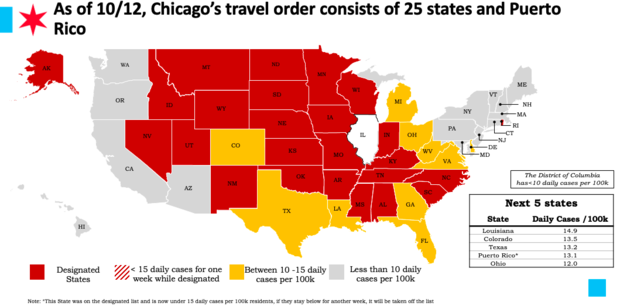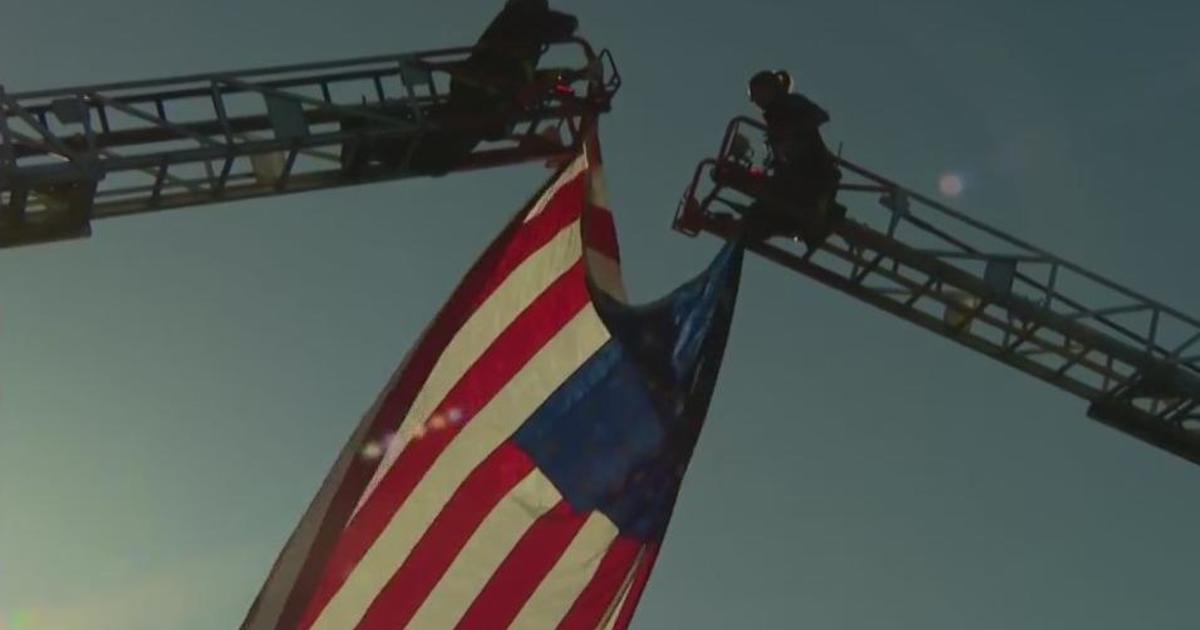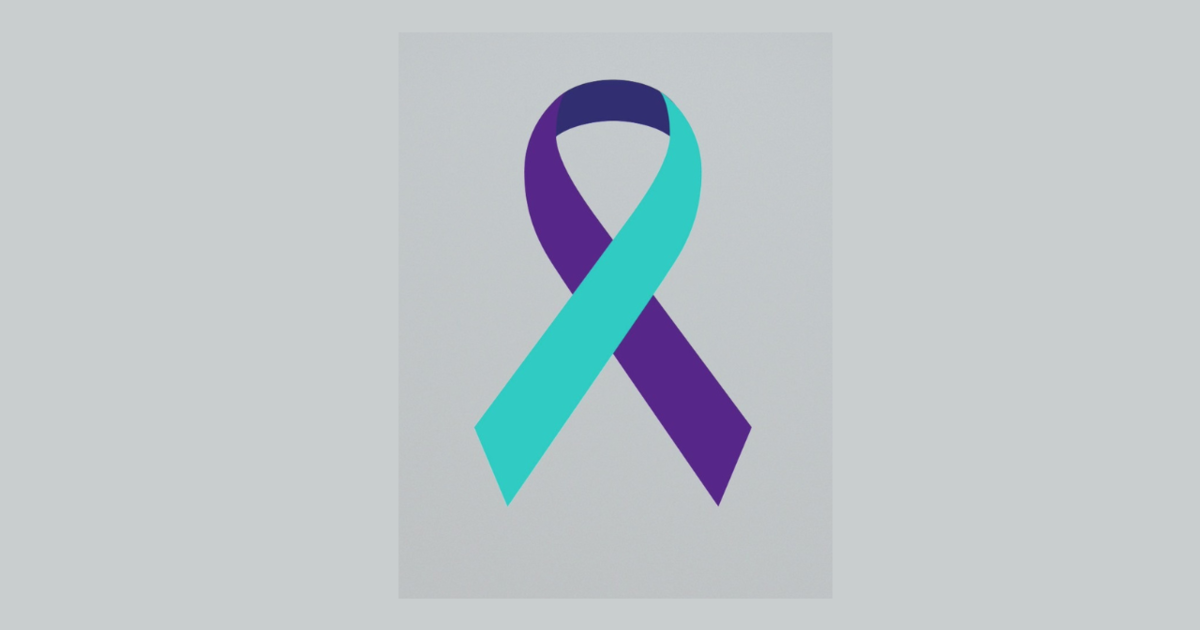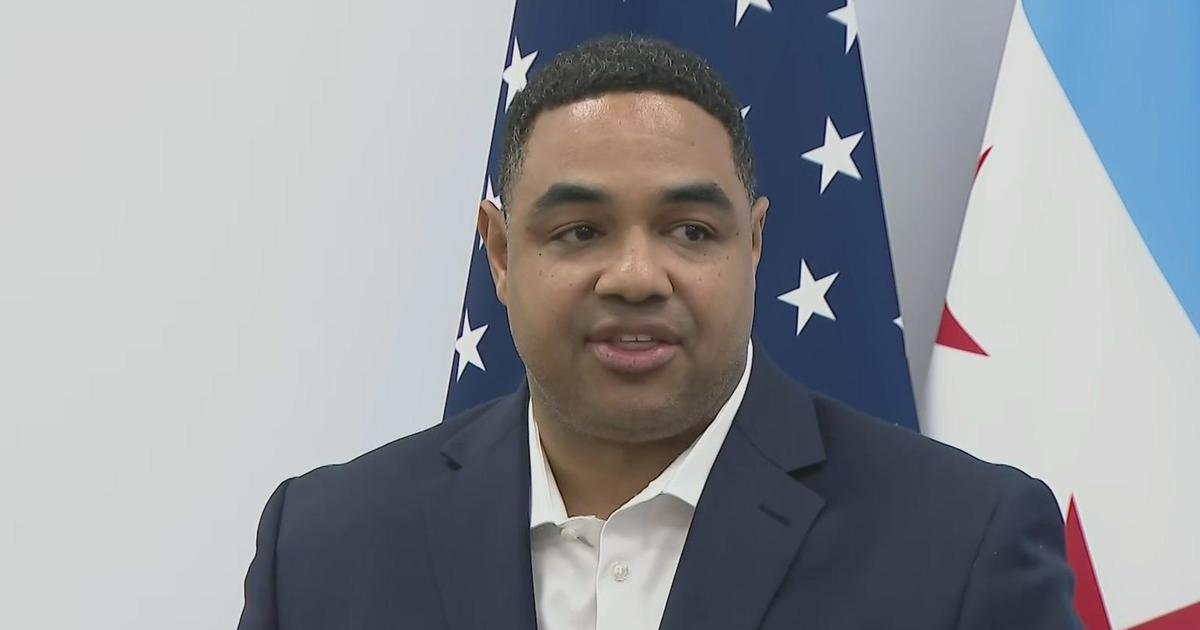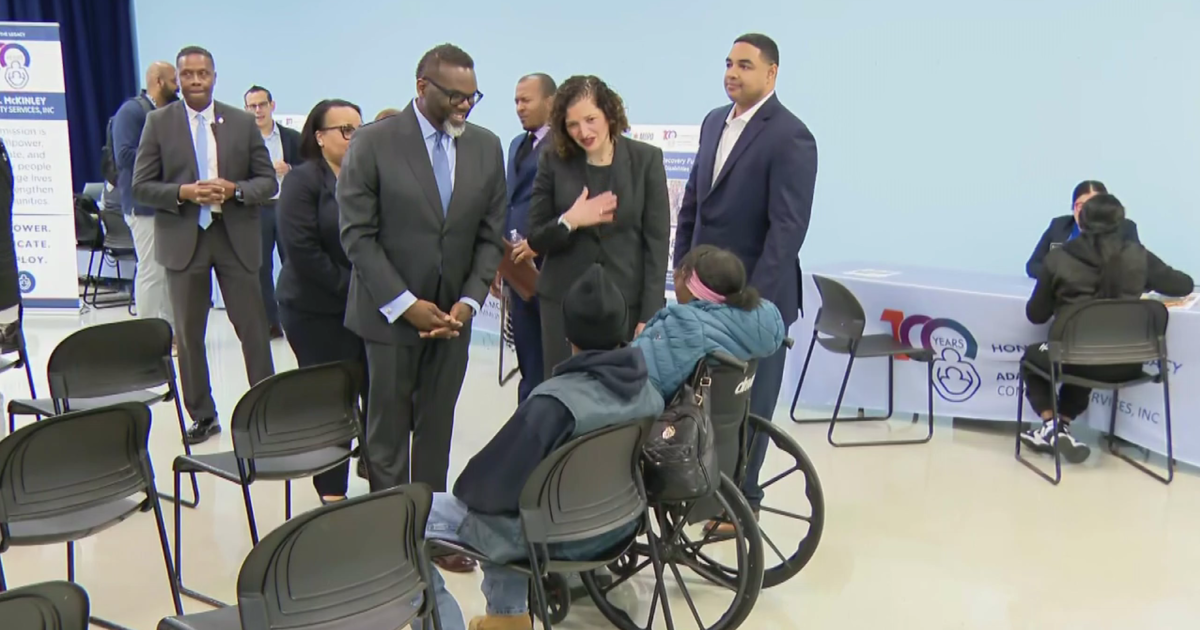Indiana, 3 Other States Added To Chicago Travel Quarantine Order As Cases In Hoosier State Continue To Surge
CHICAGO (CBS) -- Indiana, North Carolina, Rhode Island, and New Mexico have been added to the list of states and territories covered by the city's emergency travel order, which requires people to self-quarantine for 14 days after arriving from COVID-19 hotspots.
Effective Friday, the city's travel quarantine order now applies to 25 states and Puerto Rico. The list now includes: Alabama, Alaska, Arkansas, Idaho, Indiana, Iowa, Kansas, Kentucky, Minnesota, Mississippi, Missouri, Montana, Nebraska, Nevada, New Mexico, North Carolina, North Dakota, Oklahoma, Puerto Rico, Rhode Island, South Carolina, South Dakota, Tennessee, Utah, Wisconsin, and Wyoming.
"Chicago residents are strongly advised not to travel to these states," Chicago Department of Public Health Commissioner Dr. Allison Arwady said.
Chicago's quarantine mandate requires anyone who is arriving in the city from states considered to be COVID-19 hot spots to self-isolate for a minimum of 14 days when they arrive in the city, including visitors to Chicago, and residents who are returning from travel to one of the states. The list of states included in the order is updated weekly to include states with more than 15 new COVID-19 cases per 100,000 resident population, per day, over a 7-day rolling average.
Arwady warned last week that Indiana was on the verge of being included in the emergency travel order, due to a recent surge in cases.
Indiana has now seen more than 1,500 daily cases of COVID-19 for five days in a row, as the Indiana State Department of Health reported 1,569 new confirmed cases on Tuesday, as well as 27 additional confirmed deaths.
The seven-day average for new cases in Indiana stands at 1,601, the highest to date.
The number of people hospitalized with COVID-19 also has been rising over the past couple weeks, from 942 on Sep. 28 to 1,288 as of Monday night. More than 65% of ICU beds are currently occupied across the state, including 17.2% for COVID patients.
The biggest outbreaks are happening in the southwest portion of the state. In Northwest Indiana, cases also continue to rise. There were 185 reported cases in the five-county region in the past day and the seven-day average has risen to a record 193 cases.
Hospitalizations are also rising in the region in the past two weeks, from 156 on Sept. 28 to 244 as of Monday night. A total of 60.9% of ICU beds in the region are in use, including 17.6% used for COVID patients.
The recent surge in cases comes after Gov. Eric Holcomb ordered the state to fully open at Stage 5 on Sept. 26. The state still has a mask mandate and social distancing is still required at large events. Health experts also warned of an increase in cases in the weeks following the Labor Day holiday, similar to what happened on Memorial Day and July 4.
It's the first time Indiana has been included in the travel order, which now includes every state bordering Illinois.
"All around us, there is trouble. Wisconsin has a very poorly controlled outbreak. Indiana has a poorly controlled outbreak. Iowa, Missouri, and parts of downstate Illinois are not in as strong control as we are here in Chicago," Arwady said.
Changes to the list of states covered by the travel order are announced every Tuesday. Additions to the list take effect the following Friday, while removals from the list take effect immediately.
Arwady said people who regularly travel to states on the quarantine list for work or school are exempt from the travel order, but should only travel to those states for work or school purposes.
"They otherwise cannot be doing non-work or non-school related activities while this is in place, or they would be subject to the quarantine order," she said.
Exceptions also apply for those leaving home for medical treatment, or parental shared custody reasons; and for people for whom self-quarantine "is not possible, practicable or advisable."
Otherwise, people who travel to states on the list, even if for less than 24 hours, still need to quarantine upon returning unless deemed an essential worker, a commuting student, or for one of the other exceptions.
While people who violate the quarantine order can face fines of $100-$500 per day, up to $7,000, enforcement is almost entirely on the honor system. Arwady has said officials are focusing on encouraging people to change their travel patterns, and to delay trips unless they're absolutely necessary.
Although the city has issued warning letters to people they know have violated the quarantine order, officials have not issued any fines.
Arwady said, while COVID-19 cases also are rising in Chicago, that's in large part due to the city increasing its testing capacity.
As of Tuesday, the city's seven-day average case count stands at 364 cases per day, a 10% increase over one week ago, when the rate was 332 new cases per day. However, Arwady said testing capacity in Chicago has increased 11% during that time, and Chicago is now averaging nearly 10,000 virus tests per day.
"It is not the full story, but it is part of the story, and I want people to understand that the reason we expect to see these cases continue to grow is partly reflected because of tests," she said.
Nonetheless, Arwady said the rise in cases in Chicago is cause for concern.
"It's certainly cause for everybody to double down on the things that we know work: wearing your masks, keeping your distance, washing your hands, protecting vulnerable residents," she said.
The city's average positivity rate remains low, at 4.4%, the second lowest of the state's 11 regions, behind only Region 6, which includes Champaign County, where the positivity rate is hovering around 2% due to the large amount of testing done on students and staff at the University of Illinois at Urbana-Champaign.
Arwady said hospitalization numbers and death numbers in Chicago remain stable over the last few months, with the city averaging fewer than 15 new people admitted to the hospital with COVID-19 each day, down from more than 150 at the peak of the pandemic in April and May. Chicago is also averaging two to three deaths per day, down from a peak of more than 50 per day.
"That is still too many deaths, and every one of these deaths has such ripple impacts in terms of families and neighborhoods that are impacted," Arwady said.
"Now is the time to get even more serious. As we're moving indoors as colder weather is coming, we know the things we need to do, and if we do these things, I'm confident that we will be able to keep this outbreak broadly in control," she added.
Arwady said the safest indoor space is one where people are wearing masks, keeping distance, and being cautious about their interactions with others.
"Obviously, a safer indoor space is one where you know everybody, you're avoiding large crowds, you know what the risks are, and those are the most important things," she said.
